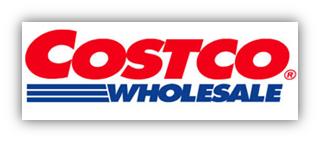It’s no secret – I’m not a great shopper. At most stores, I’m looking for a chair so I can check sports scores or email. Or better yet, a reason not to go in altogether.
 But then there’s Costco. I always look forward to a visit. The employees are attentive, friendly, helpful, and present. The variety of merchandise is fun and interesting. The free food samples work for me. And the place just has a vibe that sets it apart from other grocery, appliance, and big box stores.
But then there’s Costco. I always look forward to a visit. The employees are attentive, friendly, helpful, and present. The variety of merchandise is fun and interesting. The free food samples work for me. And the place just has a vibe that sets it apart from other grocery, appliance, and big box stores.
It’s no accident. Last week, I was cleaning out my bookmarked articles and ran across an old New York Times article, “How Costco Became the Anti-Wal-Mart.” It was a reminder to me about how different philosophies concerning the way companies are run speak volumes regarding performance and success. In the article, CEO Jim Sinegal speaks extensively about how his team works hard at driving home the differences between Costco and Sam’s Club (owned by Wal-Mart).
It’s a textbook case of brand differentiation, and it resonates with what’s going on in radio today.
Here are the key points:
- Keep the employees happy. Costco pays better – much better – and provides health care benefits that are the envy of the industry. These policies attract better, happier employees who enjoy working for the company.
- Buck Wall Street. Obviously, investment bankers aren’t happy about #1. They would rather that Costco squeeze expenses by cutting salaries, benefits, and perks. As Sinegal notes, his practice of better conditions for employees “is good business.”
- Provide customer benefits. Rather than look for ways to raise prices and increase margins, Costco goes the other way. Sinegal notes: “The traditional retailer will say: ‘I’m selling this for $10. I wonder whether I can get $10.50 or $11.’ We say: ‘We’re selling it for $9. How do we get it down to $8?’”
- Think long haul. Sinegal says he’s building a company that “will still be here 50 and 60 years from now.” A Costco rule is that no branded item can be marked up more than 14%. By holding costs down, the brand builds long term loyalty and value.
- Stay with the model and refine it. The barebones warehouse look isn’t pretty, but customers love the value proposition that excellent products at great prices are what Costco is all about. They constantly work on improving that model.
- Set a good example. Sinegal’s salary and benefits ($350,000 + $200,000 bonus) are very modest by corporate standards. He notes that if a primary value of Costco is being cost and value conscious, those same attributes have to show up in the executive salary lines.
- Be a great company. Costco balances the investment community, the welfare of his employees, and the customer experience. And the focus is always on driving home the difference between his company and Sam’s Club. As Costco’s senior VP for human resources John Matthew notes, “When Jim talks to us about setting wages and benefits, he doesn’t want us to be better than everyone else, he wants us to be demonstrably better.”
- Be a great leader. In every way, Costco and Sinegal are sending the message that excellence starts at the top of every organization. Aspiring to do the right thing and communicating that philosophy to the troops and to customers are what separates the great companies from the good ones.
So how does this translate to the radio business?
 There was a time when employees aspired to work at certain companies. It was not uncommon to speak with DJs, programmers, and sales people who had their sights set on getting hired by a particular broadcast company. Oftentimes, this stated goal trumped the desire to work in bigger markets.
There was a time when employees aspired to work at certain companies. It was not uncommon to speak with DJs, programmers, and sales people who had their sights set on getting hired by a particular broadcast company. Oftentimes, this stated goal trumped the desire to work in bigger markets.
Today, the playing field has leveled among companies. Perhaps the Wall Street pressures and a tough economy have created that environment, but it is no longer common to hear broadcasters dream about going to work for one company over another.
But as the Costco example points out, it doesn’t have to be that way.
In today’s environment, a good broadcasting company can become a great place to work by studying the Costco model. There is a way forward for product differentiation, allowing a company that aspires to create the best possible conditions to attract the very best people.
In radio, good news – and bad news – travels fast. Broadcasting veterans know the companies to avoid. They hear the stories about “worst practices,” and some of the things that are happening to people who have performed well for the same stations and the same companies for decades.
But conversely, do they know the companies that truly are differentiating themselves from the pack? The key is determining a company’s demonstrable benefits, and how can the case be made to Wall Street or the board of directors to aim higher…and win bigger.
I know the companies I’d prefer to associate with if I had to go back to work and get a real job.
Discretion prevents me from naming names, but the reasons why the best broadcasters ought to step up and define those differences are becoming more important every day. There are many talented, dedicated radio professionals looking to continue their careers in a better place. Companies that make an important statement – especially during difficult times – are the ones that can grow, prosper, and improve while others punish their employees.
Going for greatness works on all levels.
It serves advertisers. It betters communities. It attracts the best people and keeps them.
It’s about loyalty.
What do you aspire to?
- What To Do If Your Radio Station Goes Through A Midlife Crisis - April 25, 2025
- A 2020 Lesson?It Could All Be Gone In A Flash - April 24, 2025
- How AI Can Give Radio Personalities More…PERSONALITY - April 23, 2025




This doesn’t just apply to radio – the corporate world has adopted a new model. I often hear baby boomer managers complain about the work ethic and loyalty levels of gen y and millennials, yet they’ve created the monster themselves. When loyalty isn’t rewarded, raises are in the 2% range regardless of performance and layoffs are decided by software to minimize discrimination liability, you sacrifice the work ethic and loyalty of the past. For many, that may be a worthwhile tradeoff. In fact, in some retirement fund or another, I probably am invested in companies that have gone that route, shown nice returns and have been happy about the whole thing.
But you can’t blame people for reacting intelligently to a situation. And if extra effort, hours and devotion bring no rewards, no one should be surprised when they’re missing from the equation.
Bob, you may be right, but the Costco example suggests there is another way. And in an industry like radio where we need to attract sharp employees with something to offer, there may be more avenues than people think. A lot of people are turned off by the behavior of the past several years, and what’s going on out there now. I believe there are opportunistic CEOs in radio who can benefit from the chaos and turmoil. At least, I hope so. Thanks for taking the time.
Great breakfast-reading this morning, Fred! I didn’t know all those wonderful things about Costco.
But as far as radio’s concerned, I DOUBT that the companies who NEED to read this, WILL. Which makes it even more frustrating.
Best wishes in 2013….IF we make it. 😉
Thanks, JC. I think that smart CEOs smell opportunity in this type of environment. At least, let’s hope so. All the best & thanks.
Fred,
I really enjoy reading your blogs. They are so insightful and can apply to most any business.
Hope you are doing well, please give my best to your family.
Have a great holiday.
Steve
Steve, great to hear from you, and thanks for the kind words. All the best to you and the Grossmans in the new year.